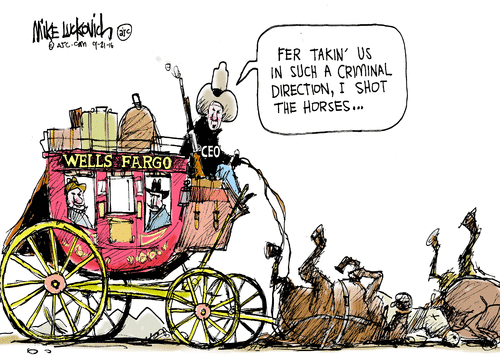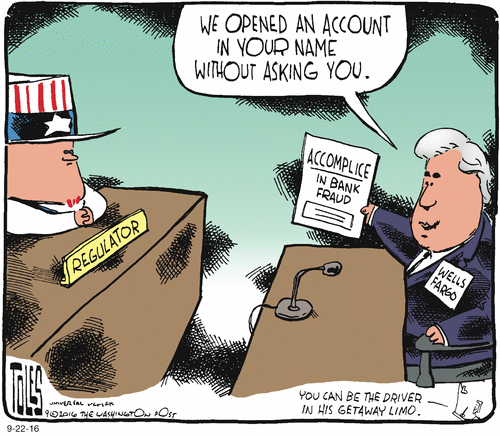My favorite Senator has been rude to Trump again, in a Washington Post op-ed:
Cratering in the polls, besieged by sexual assault allegations and drowning in his own disgusting rhetoric, Donald Trump has been reduced to hollering that November’s election is “rigged” against him. His proof? It looks like he’s going to lose.
Senior Republican leaders are scrambling to distance themselves from this dangerous claim. But Trump’s argument didn’t spring from nowhere. It’s just one more symptom of a long-running effort by Republicans to delegitimize Democratic voters, appointees and leaders. For years, this disease has infected our politics. It cannot be cured until Republican leaders rethink their approach to modern politics…
For years, Republican leaders have pushed the lie that voter fraud is a huge issue. In such states as Kansas and North Carolina , and across the airwaves of right-wing talk radio and Fox News, Republican voters have been fed exaggerated and imagined stories about fraud. Interestingly, all that fraud seems to plague only urban neighborhoods, minority communities, college campuses and other places where large numbers of people might vote for Democrats. The purpose of this manufactured hysteria is obvious: to delegitimize Democratic voters and justify Republican efforts to suppress their votes…
… Which reminded me that I’ve been saving an NYTimes article, one of their Table for Three series, by Philip Galanes:
Tracee Ellis Ross may be working 14 hours a day in Los Angeles on her hit TV show, “black-ish.” “But when Elizabeth Warren says she’ll have dinner with you,” Ms. Ross said, walking into a suite at the Hay-Adams Hotel in Washington, “you get on a plane. I have a million questions for her.”
And from the moment Senator Warren entered the lobby, friendly to all but racewalking toward the elevator, she was happy to offer answers: breaking down complex problems into plain-spoken choices, engaging everyone in sight. When a woman on the elevator said, “You look familiar,” Ms. Warren introduced herself, shook her hand and asked how her evening was going…
Ms. Ross, 43, has also established herself as a powerful advocate, particularly for self-esteem among black girls in a series of TV specials, “Black Girls Rock,” and through social media. For eight seasons, beginning in 2000, she starred in the sitcom “Girlfriends,” for which she won two NAACP Image Awards.
But her greatest exposure and acclaim have come with her starring role on “black-ish,” about an extended African-American family… For her performance, Ms. Ross was nominated for an Emmy for lead actress in a comedy. She is the first African-American woman to be nominated in the category in 30 years, and only the fifth in Emmy history…
Philip Galanes: One reason you’re both such powerful advocates — for the middle class, for self-esteem — is that you’ve fused who you are with the issues you care about.
Elizabeth Warren: Well, I know who I am, and I know what I fight for. Whether we’re talking about making college a little more affordable — or health care or social security — I want to be as sharp as I can be because I know how tough things are. That’s my opportunity now.
PG: It reminds me of your great line: “I was brought up on the ragged edge of the middle class.” What made it “ragged”?
EW: Because it was so hard to hold on to. My mother clung to it — “We are middle class” — because our grasp was so tenuous. There were times we were and times we weren’t.
Tracee Ellis Ross: I feel like I’m on the inside for the first time. Inside the castle. I have an Emmy nomination! And I’ve been in this career a long time. I’m 43, not some ingénue who just stumbled into this. Much of my role has been as an advocate for self-esteem and humanity. The beauty of my work is that I get to unzip something that people are afraid to touch. To make them more comfortable in their own skin.
Excellent Read: “Elizabeth Warren & Tracee Ellis Ross on the Road to Activism”Post + Comments (115)





